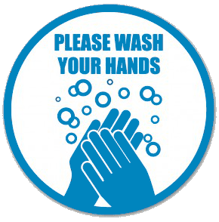By Bruce Belfiore | February 29, 2020

COVID-19, more commonly referred to as the Coronavirus, is spreading rapidly as I write this in February, 2020. As a result, there are contact center managers worldwide who are wondering what to expect and how best to prepare. I am not a public health expert, but I will do my best to interpret what I know for our community of professionals.
First, let’s properly frame the crisis. Tens of thousands have been infected worldwide. Most have mild cases and recover within a week or two. An estimated 1% die* (mostly older people with pre-existing medical issues) – tragic on a human level, but limited. So, even if your area gets hit, the impact from a medical viewpoint may seem pretty much like the flu.
- General impact. The medical consensus is that the unknowns of COVID-19 warrant a massive public response. As we have seen in places like China, entire municipalities can be quarantined by civil authorities and bring daily life to a halt. Employees:
- Cannot go to work normally
- Must stay home with their children if schools are closed
- Those who can and do come to work may be relying on their employer to provide as “safe” an environment as is reasonably possible. This may include providing ready supplies of hand sanitizer, constantly-filled hand soap containers in rest rooms, and possibly other actions (disinfecting facilities, providing tight-fitting face masks) to make the worksite as virus-free as possible.
 You should put up signs reminding people to wash their hands and post announcements that people who develop symptoms should stay home or, if they develop symptoms during their shift, should make this known to their supervisor / manager.
You should put up signs reminding people to wash their hands and post announcements that people who develop symptoms should stay home or, if they develop symptoms during their shift, should make this known to their supervisor / manager.
Depending on how things evolve, a center where someone comes down with the symptoms during the work shift (and subsequently tests positive for COVID-19) may result in everyone in the center being quarantined in one manner or another (most probably sent home for self-quarantine). Even the most prepared center for business continuation does not have isolation rooms. So, handling such a situation must be clarified with local health officials ahead of time. I visited a Florida utility that has overnight facilities designed to allow contact center agents to stay overnight (with their families!) during hurricanes. However, even this exceptional center does not have facilities for quarantined patients.
- Center-specific impacts. These can range widely, according to the industry sector:
- Community service numbers (211, 311, etc.). If Coronavirus hits your community, the calls will be many and anxiety will be high. As managers, you need to be sure you have the latest information and the best possible scripting and training so that the service you provide is optimal. You may want to set up a separate hotline. Some governments, including Nevada, have already confronted the issue.
- Suppliers of related products. Distributors of face masks, protective costumes, anti-bacterial products, test kits, respirators, etc. can expect to be deluged with calls and requests. If a rationing program is required, it should be decided ahead of time, posted clearly on your Website, and included in IVR messages before the customer reaches an agent.
- Healthcare / Health insurance. The impact here is obvious. Enough said.
- Companies with Supply Chains tied to affected countries. Everything from pharmaceuticals to Ferraris could be affected. Expect some anticipatory purchasing (and possibly some panic buying) to reach your contact center operations. Again, decide ahead of time if you will ration what you have.
- Travel. The next call to your center may be more likely a cancellation than a reservation. You are in for some grim weeks and need to prepare. Airlines, among others, are going to be hit with very stressed people wanting precise information (even where that’s not possible) and others wanting their money back. I recommend some extra coaching and special attention during this period.
- Utilities. Healthcare workers and other first responders who are working overtime due to an outbreak in your area will undoubtedly miss payments. Be ready to handle these situations in a way consistent with your company mission statement and with an eye toward your next Public Utilities Commission review.
- Financial services. Investors, large and small are reacting to dramatic stock market news. If you manage a center in the brokerage industry you will need to coach your reps well on appropriate scripts, and make sure they respond to each client as an individual, and not just the latest in a flood of anxious callers asking the same things. To the extent you use low cost communicators (website, IVR, etc.) to alleviate the load on your reps, just be sure the message is delivered really well and in a way that will enhance your brand, not hurt it. Credit card companies and lenders may need to plan for delayed remittances from people in quarantine or overworked healthcare workers who miss their payment dates.
- Mental Health hotlines. Coronavirus will have a mental health impact along with the physical health impact. Mental health hotlines should discuss response strategies so that they can be a positive force in these troubled times.
- Life Insurance. Tragically, Coronavirus will claim lives, including the lives of people with life insurance policies. Reps should be prepared for these calls.
 Planning and Budgeting impact. This is a test of your business continuation plan. Review it now in light of the specific challenges presented by Coronavirus. If your plan lacks a “stay in touch with local health department” paragraph (as many do), add this now and get yourself tied in with your local authorities. Hopefully they will be a valuable resource for you.
Planning and Budgeting impact. This is a test of your business continuation plan. Review it now in light of the specific challenges presented by Coronavirus. If your plan lacks a “stay in touch with local health department” paragraph (as many do), add this now and get yourself tied in with your local authorities. Hopefully they will be a valuable resource for you.
IVR announcements about hold times or service interruption due to the outbreak should be well-designed and ready to roll in case of need. If you have more than one contact center, pre-test your redundancy capabilities. Have your other centers (or outsourcer) ready to take over quickly and seamlessly.
If you already have some at-home agents, consider what would happen if you had to have all of your agents working at home tomorrow. If your system allows for at-home agents, but you have never used this option, now is the time to do a pilot. If your system does not allow for at-home agents, now may be the time to consider acquiring these capabilities. 
Consider impacts on your Customer Experience Journey – from start to finish. Determine where your systems and processes are vulnerable. Give special attention to your IVR and systems efficiency. In addition to expanding at-home capabilities, you may want to consider or expand your automation capabilities, including virtual agents. Virtual agents cannot be created overnight, but you may want to include a virtual agent study in your plans for next year.
One last bit of advice. At work, stay away from the politics. Coronavirus is a human health problem with important managerial impacts. Keep your focus on the health and well-being of your people, while providing superior service to your customers.
And don’t forget to wash your hands.

Bruce Belfiore
Senior Research Executive and CEO
BenchmarkPortal
Note: Bruce will be hosting a special edition of his online radio program, CallTalk™, dedicated to the Coronavirus and contact center management.
* Estimating the mortality rate for Coronavirus is difficult, because people with mild symptoms may never even see a doctor and thus evade the statistical count. The same is true for the flu. https://www.bbc.com/news/health-51674743



